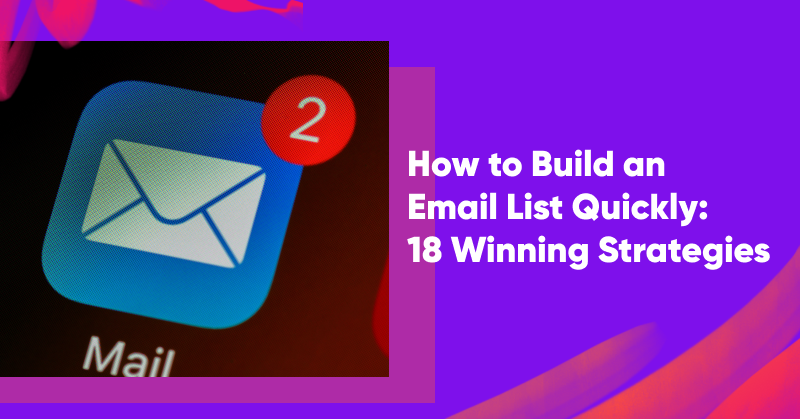New Strategies For Picking A Pathologist Email List
Wiki Article
What Should I Consider When Buying The Family Medicine Email Database?
To ensure that you receive top-quality, accurate, and legally compliant information for your marketing or outreach campaigns, there are several aspects to take into consideration. There are a few things to consider: Quality of data and accuracy
Source of data: Verify that the source of data comes from trusted and verified sources. These include licensing bodies, medical directories professional associations, opt-in databases. Family medicine practitioners' email addresses should be appropriate, current, and tailored to the audience you are targeting.
Verification Process - Contact the service provider for their verification procedure. To remove invalid or inactive emails the email list should be cleaned regularly and kept up to date. Validated messages lower the number of bounces and improve delivery.
Segmentation Options: The list should allow segmentation according to criteria like the geographical place of residence (country or state, city) or years of experience, size of practice or the specific areas of interest (e.g. pediatric health or geriatrics and preventive medicine). Segmentation can be used to boost engagement by utilizing more specific outreach.
2. Legal Regulations
Data Privacy Laws – Ensure you are in compliance with the General Regulations on Data Protection in Europe as well as the California Consumer Privacy Acts in the U.S.A. Email addresses must be legally collected and with consent in order to avoid any regulatory penalties.
CAN-SPAM Act Compliant: If your email marketing is done in the U.S.A. Make sure your list of recipients is in compliance. It's important to provide clear opt-out options and avoid using false subject lines or other information within your emails.
Opt-In Consent: Confirm the email addresses have been collected through opt-in consent. This signifies that the family medicine physician consented to receiving marketing messages from third-party companies. This ensures that the privacy laws are in compliance, and reduces spam complaints.
3. Provider Reputation
Reputable provider: Select an organization that is renowned for its high-quality, compliant data. Look for testimonials, reviews and case studies from customers to determine the provider's reliability and credibility.
Transparency: Providers should be transparent about how they obtain data and how often they update it. If the provider doesn't know how to source their data, that's an alarming indicator.
Customer Support: Make sure the service you choose offers solid customer support. You may need assistance with technical questions including list segmentation and making sure that your list is compliant with regulations.
4. Cost and Return on Investment (ROI).
Pricing Models. The companies offer a variety of pricing structures, such as pay per contact flat fee, subscription or pay per contact. Choose a model of pricing that is within your budget and ensures an increase in return on investment.
Refund/Replacement Policy: Most reputable providers offer a return or replacement policy if the email address you have entered is invalid or out-of-date. Be sure to read the terms of this policy prior to purchasing to protect your investment.
Value for money: Don't just focus on costs. While a lower priced list may appear appealing, this could result in poor delivery or a high bounce rate. It's better to purchase a premium list that offers more effective targeting and more engagement.
5. Data Ownership and Usage
Single Use or. Multiple Use: Clarify whether you can utilize the list in multiple instances or if it's for single-use only. Lists that allow multiple campaigns may be more valuable, particularly in the case of ongoing outreach.
Exclusive vs. Shared lists: Find out whether the list is yours solely or is being offered to buyers from other sources. Exclusive lists have a lower chance of producing crowds that are oversaturated. They also tend to produce more engagement.
6. Data Integration and Format
CRM compatibility: Make sure you have your email list formatted in a way compatible with your CRM system (CRM) or with your email marketing tool. (Example, CSV). This will ensure a smooth integration and easy-to-use.
User-friendly The list is easy to sort and segment based on the criteria that are important for your campaign. This will help streamline your targeting and messaging campaigns.
7. Ethical Besorgnization
Relevance in Outreach: Family practitioners are professionals who work full-time. So, make sure you tailor your outreach to fit their requirements. Avoid generic messages that are irrelevant or not relevant. It could damage the reputation of your company or cause complaints about spam or poor participation.
Beware of Spam Methods. Send out emails in a thoughtful manner. Don't over-email. Sending numerous emails or insignificant promotions can result in unsubscribes, spam reports, or a damaged sender reputation.
Conclusion
To ensure the effectiveness of your outreach, you should focus on three factors: data quality and legal compliance. It is important to look for information that has been filtered and validated to comply with privacy regulations as well as being in tune with your customers. Making sure you have a reliable database and sending relevant marketing messages will help you increase engagement rates and boost ROI. View the most popular family medicine email list for website recommendations.

What Aspects Should I Consider When Purchasing Software For Data Appending?
The consideration of a data appending service is important. It is important to consider a variety of factors to be certain that the data appending service will enhance the quality and accuracy of your data while adhering to ethical, legal and compliance standards. Data appending involves adding missing details to your database like demographic information and phone numbers as well as email addresses. Below are key considerations when buying data appending services: 1. Accuracy and Data Quality
Source of Data: Verify that the provider who is appending data uses reliable, high-quality sources, such as opt-in directories or public records. Reputable data providers will often obtain their data from legitimate sources. This will ensure that the data appended is accurate and up-to-date.
Verification Process: Find out whether the company has a thorough method of verifying and validating the data. This ensures that the data is up-to-date, accurate and appropriate to your needs. As part of the services provided by your provider it is expected that you receive regular updates and cleansing of data.
Match Rate: Different vendors offer various match rates. These refer to the percentages of records which could be enhanced by new information. Find a balance between data accuracy and a high rate of matching.
Customization - Based on the requirements you have to do, make sure the service has options for data append that can be customized. This can include appending various types of data, such as contact details, behavioral information, or demographic and firmographic data.
2. Data Security and Privacy
Compliance with Regulations - Data appending is a procedure that handles sensitive personal information. It is therefore crucial to be in compliance with privacy regulations such as the California Consumer Privacy Act and General Data Protection Regulation. Data appended must be collected, used and processed in a legal manner to stay clear of penalties.
Consent management: Make sure to only use information that was provided by people who have explicitly agreed to the data to be shared. Beware of data that is based on inconvenient or illegal practices.
Data Security: Make sure that the service provider has strict security measures for your data to ensure the confidentiality and integrity of both your existing database as well as any information you add to it. Secure data transfers, encryption, and access control are all a part of this.
3. Provider Reputation
Vendor with a Good Name: Look for an organization that has an excellent reputation for providing applications that can be used to add data that are precise and legal. You can evaluate their past performance by looking at reviews, testimonials, and reviews. If a company has been operating for a while is likely to provide high-quality service and abide by the law.
Specialization in Industry: Some vendors have a specialization in certain fields such as healthcare, finance or retail. If your company is in a specific market seek out a provider who has experience and knowledge within your field. These companies may have more specialized solutions to fulfill your needs.
4. Costs and Returns on Investment (ROI).
Pricing Model: Data appending firms have different pricing plans. For example they can charge per record, or establish charges for large updates. Make sure that you are informed of pricing structures and its alignment with your budget. Beware of cheap alternatives, since they could reflect poor data quality.
Calculate potential returns from investment by adding additional information. Good service should improve the engagement of customers, boost conversion rates, and overall performance in marketing. Check out the costs associated with the service against the benefits you can expect from having more accurate and actionable information.
5. Data Types and Optional Appending Options
Types of Data: Consider the type of data that you want to add to your database. Typical types include:
Email addresses: crucial for emails for marketing campaigns.
The importance of phone numbers is in sales outreach, customer service and many other types of services.
Demographic data are valuable for segmentation of marketing and targeting.
Firmographic data is essential for B2B marketers who want to target businesses based on revenues, the number of employees, or industry.
Social Media Profiles: Some service providers allow you to add social media handles. These can assist in your social media and digital marketing strategies.
6. Data Integration and Format
Compatibility: Ensure that the data that you are adding is provided in a format that is compatible that is compatible with the Customer Relationship Management (CRM) software, Marketing Automation Software, or other tools that you are using. Standard formats include CSV, Excel, or API integration. These formats allows for easy data import and use.
Data Cleaning and Enrichment: A good appending service provider is good should offer cleaning and enrichment solutions. Appending involves the correction of incorrect data, removal of duplicates, and elimination old records. Data enrichment involves more than just a matter of adding fresh data. It also improves the overall quality of your database.
7. Ethical Besorgnization
Transparency - The service provider should be clear about where and how the data was obtained. The ethical services for appending data will be governed by strict rules regarding data source and usage. They ensure that data is collected legally and in a transparent manner.
Effect on Engagement: Be aware that adding contact information such as emails or phone numbers shouldn't lead to spammy or invasive methods. Make sure to use the information appended and make sure you adhere to the highest standards when it comes to outreach, opt-out options, and the privacy of consumers.
The final sentence of the article is:
When selecting companies to append data, consider the following the quality of data as well as legal compliance and the reputation of the provider. Select services that provide safe, verified data that is compliant with privacy laws including GDPR and CCPA. Apart from making sure that the information you're appending is compatible with system in your business, consider the ROI on making investments in reliable and rich data. When you choose the best appending service and making sure you are focusing your efforts on ethical standards that will greatly improve both your marketing efforts and business performance. See the top rated data appending services for more advice.
